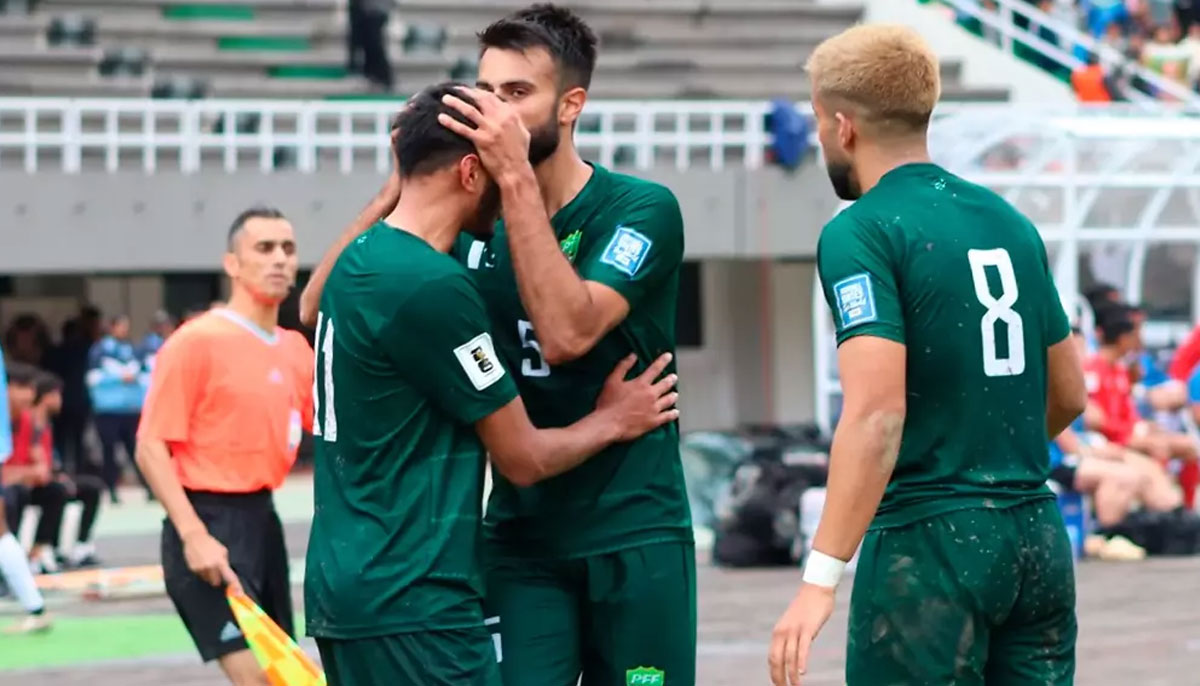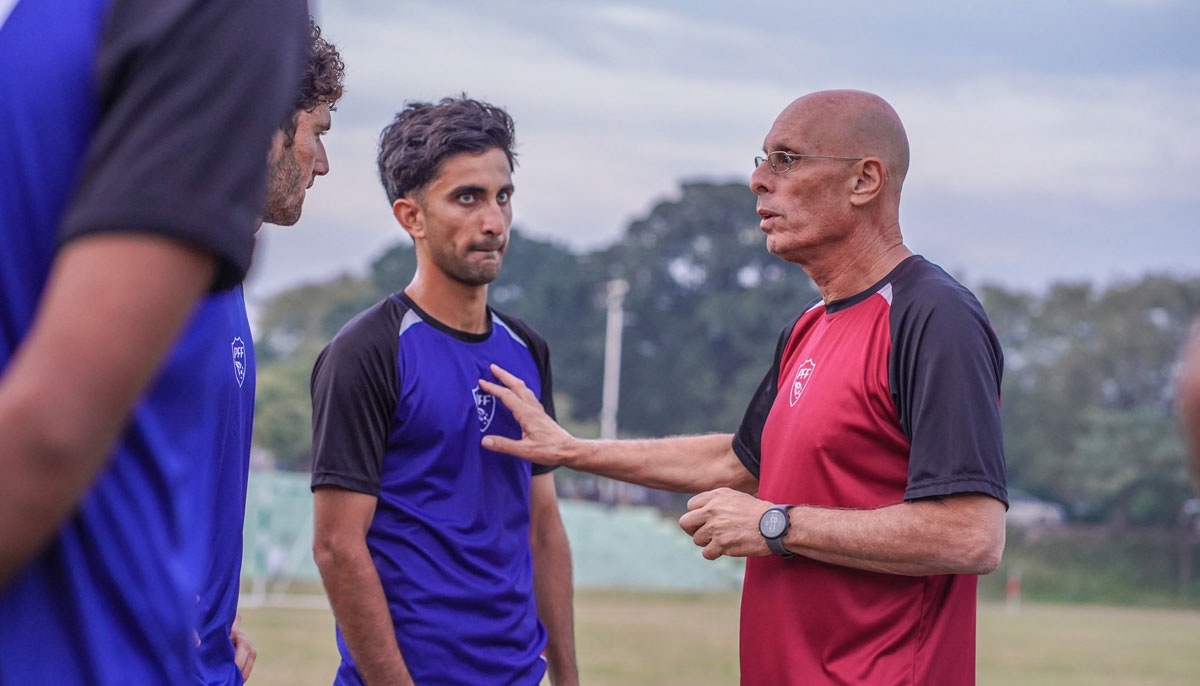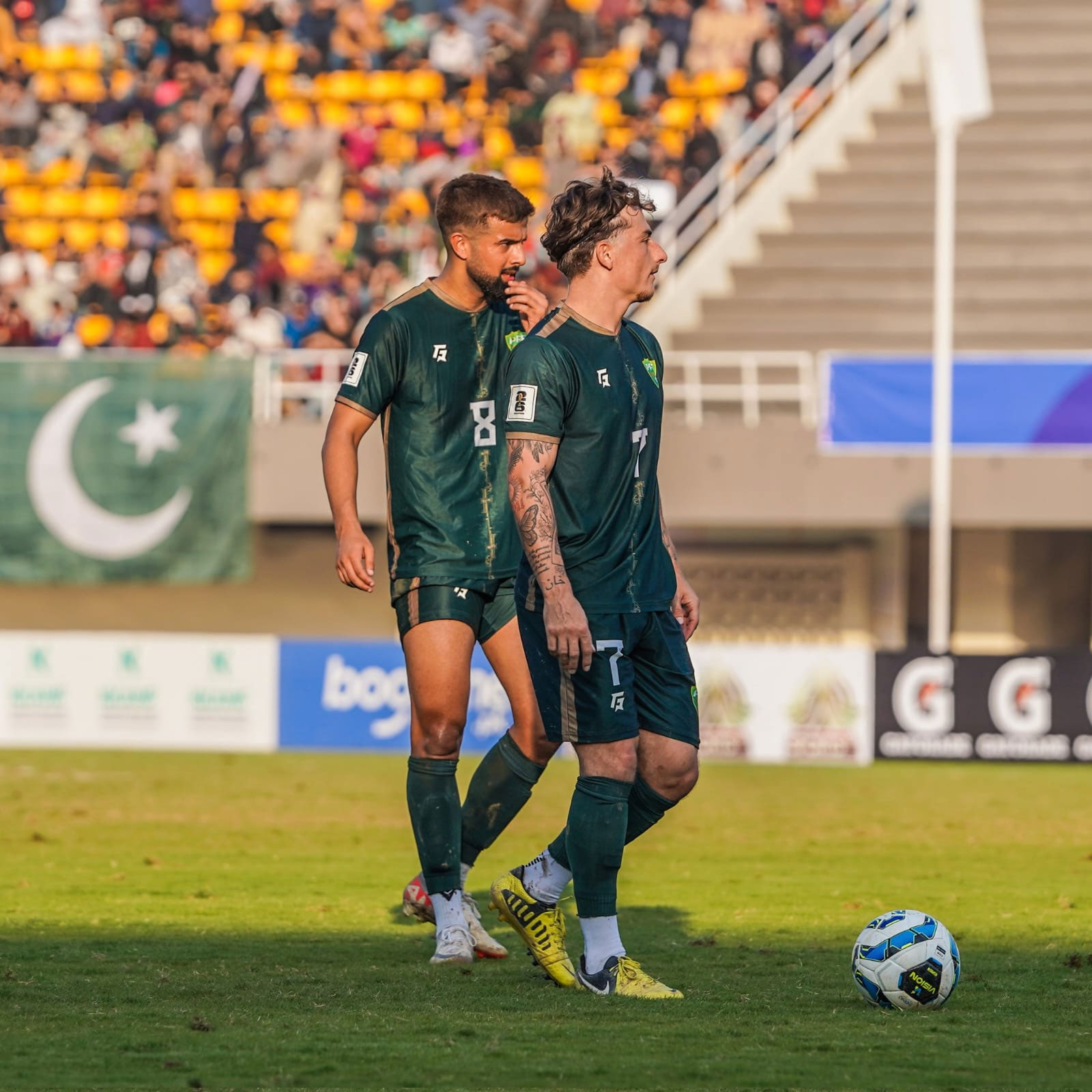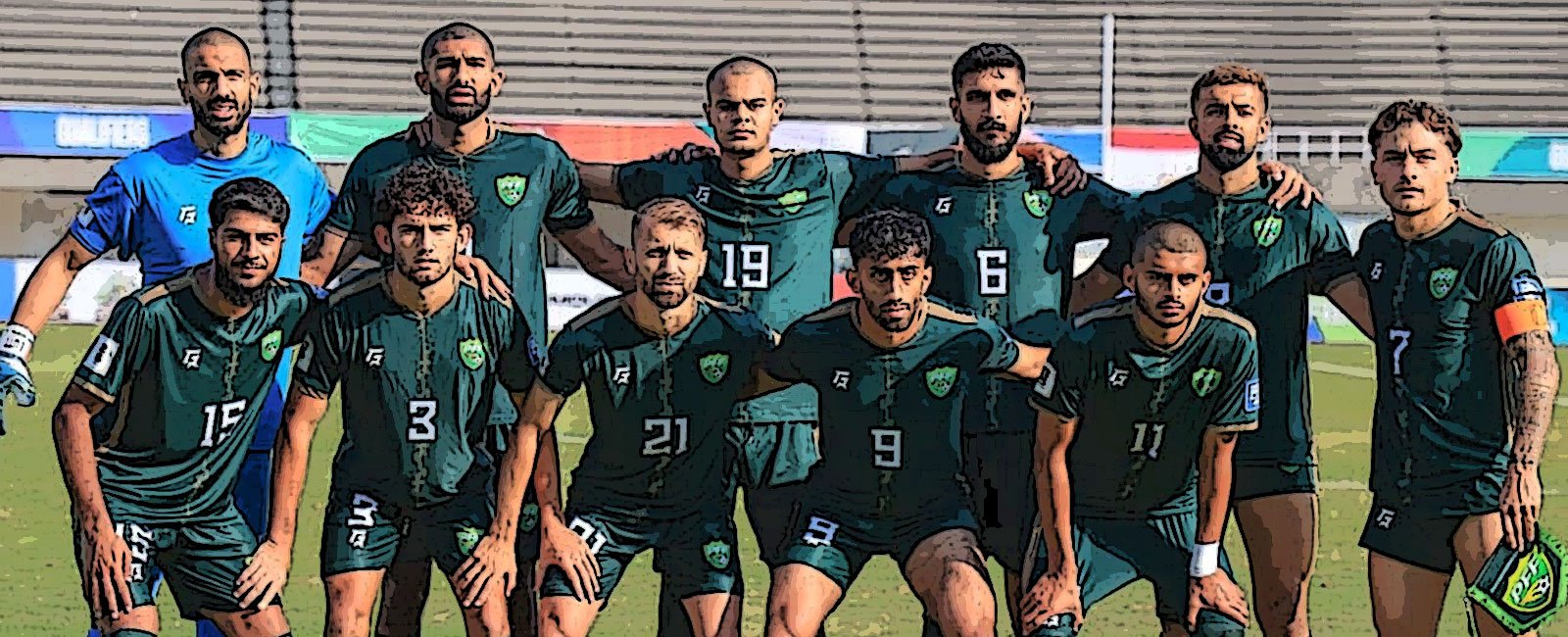FIFA World Cup 2026 Qualifiers: Pakistan football needs more than luck to go past global goalposts
Pakistan has always had a complicated relationship with football, be it toxic discourse over local and diaspora players, lack of facilities or turmoil surrounding PFF

Little over a month ago, probably the fondest memory of Pakistan football fans, when it comes to FIFA World Cup Qualifiers, was the goalless draw in the second leg against Iraq, who were the then AFC Asian Cup Champions, in 2007. If the referee had sided with Pakistan in the dying minutes of the match, after a strong penalty shout, who knows Pakistan could have even won that match.
Over the years, at times, it seemed as if the wait for Pakistan’s first win in a FIFA World Cup Qualifier would go on forever. However, after a long wait of 34 years, the curse was finally lifted as Pakistan won its first-ever FIFA World Cup Qualifier against Cambodia last month in front of their home crowd at the Jinnah Stadium in Islamabad.
Pakistan has always had a complicated relationship with football, be it the toxic discourse over local and diaspora players, lack of facilities or the turmoil surrounding the Pakistan Football Federation (PFF), which has been the talk of the town due to warring factions, constitutional violations, financial irregularities and multiple bans from FIFA.
Currently, there is a FIFA-appointed Normalisation Committee, which was installed in September 2019, in charge of PFF which is tasked with holding elections till March next year.
But amid the chaos, the people who have suffered the most are the players, as many saw their careers take a turn for the worse due to the lack of football in the country, while some left the game, bearing in mind the financial instability, in order to make ends meet.
This is precisely the reason why the victory over Cambodia was not just a win for the current squad but also a monumental achievement for the fans and players who have supported Pakistan through thick and thin over the past decade.
Curb expectations
However, 193-ranked Pakistan must keep their expectations in check because the win against Cambodia doesn’t mean that they can go toe-to-toe with the opponents, which includes Saudi Arabia, Tajikistan, and Jordan, in the second round, where the Shaheens are the lowest-ranked team among the 36 that are participating, of the FIFA World Cup Qualifiers.
With PFF surprisingly prioritising AFC U23 Qualifiers over international friendlies, changing the coach, replacing Shahzad Anwar with Stephen Constantine, at the 11th hour and delaying payments to players and team management ahead of the Cambodia game, things could have easily gone pear-shaped for the Green Shirts. However, now that they are in the second round, Pakistan should use the upcoming matches to gain experience and exposure by playing some top-quality sides — who are all ranked above them in the FIFA Rankings.

In the first match, Pakistan did well for the majority of the away match against Saudi Arabia, with a good defensive structure, but the scoreline, 4-0, does not do justice to their performance. Towards the end of the fixture, Pakistan’s players were clearly exhausted, since they are not used to playing such high-intensity matches, and ended up conceding two goals in injury time.
Even Saudi Arabia's renowned coach Roberto Mancini praised the Pakistani team’s performance.
“In the world of football, there is no easy match, and the Pakistani national team performed well,” Mancini said after the match.
If the Saudi clash showed that there is light at the end of the tunnel, the following Tajikistan match once again highlighted the harsh reality of Pakistan football after the Shaheens got humbled 6-1, despite a brilliant strike by Rahis Nabi, on home soil.
The absence of captain and star defender Easah Suliman, due to injury, didn't help Pakistan's cause during the matches in the second round, especially against Tajikistan.
Although Suliman will be back from injury in the remaining matches in the second round, bearing in mind Pakistan’s fragile defence, Pakistan should think about recalling talented centre-back Abdullah Shah, who was regularly part of the starting XI before Constantine took charge, in order to bolster their backline.
Back Constantine
While the disappointment was understandable after the defeats, Pakistani fans need to realise that head coach Constantine doesn’t have a magic wand which can fix the age-old problems of the country’s football. He needs time and backing from the federation and football fraternity in order to get the game back on track in the country.

You don’t have to go too far back to identify the work done by Constantine, who was instrumental in putting Indian football back on track. During his second stint, starting in 2015, with the Men in Blue, Constantine helped the country qualify for the AFC Asian Cup while also helping them register their best-ever FIFA Ranking of 96. He also laid great emphasis on sports science and nutrition to improve the quality of players.
While Pakistan might not have billions at its disposal for the betterment of football in the country, like Saudi Arabia for instance, Constantine will need the backing of the local authorities in terms of infrastructure and professionals, who understand how the game works and trust the process required to constantly improve on the field.
Support from fans
Probably one of the biggest positives of the World Cup Qualifiers for Pakistan has been the crowd that attended the matches on home soil.
Since Pakistan is widely considered a one-sport, cricket, nation, people turning up in large numbers for the matches against Cambodia and Tajikistan was a breath of fresh air.
Currently, only the Jinnah Stadium in Islamabad meets the FIFA requirements in terms of hosting a football match in Pakistan. However, with the necessary backing from the federal and provincial governments, the PFF can also organise matches in other cities of Pakistan, especially in football-mad Karachi.
The interest of fans is also a sign for the government and investors in Pakistan to take the sport seriously and step up for the betterment of football in the country.
Football league and diaspora
Another hot topic of discussion within the Pakistan football fraternity is the absence of a club-based football league. If you take a look at the majority of the successful football nations all over the world, they all have one thing in common, which is a proper tier-based football league.
The last time the Pakistan Premier Football League was held was back in 2018-19 and as long as Pakistan don’t have a competitive league, the development of local players will continue to remain stunted which is evident from the matches the Shaheens have played over the past year.

There is a significant gulf between the quality of local and diaspora players, like Otis Khan, Harun Hamid and Easah Suliman, since the latter regularly play club football in leagues all over the world. This is in stark contrast with the majority of the local players who struggle for competitive football when they are away from the national team.
This leads to a lack of match fitness, and game awareness while also not having the opportunity to improve the technical aspects of the game. Hence, a month-long training camp before the start of an international window can only take a player so far in terms of fitness and quality.
It is imperative that Pakistani fans and former footballers accept that the diaspora is the need of the hour rather than vehemently criticising their inclusion in the national squad. If someone has Pakistani blood running through their veins, why does it matter where they were born?
Pakistan could welcome more diaspora players in the coming months, especially in the shape of talented players like Adil Nabi, who plays for Cypriot First Division club Doxa Katokopias, and Etzaz Hussain, who plays his trade for Cypriot club Apollon Limassol.
The inclusion of Hussain and Nabi will add much-needed stability to Pakistan’s midfield and add more incisiveness to the team’s passing.
“It has been good, the most important thing in football is the effort and the hard work and not to give up and I think the players have done that,” Nabi told Geo.tv in an exclusive interview while talking about Pakistan’s performance in the World Cup Qualifiers.
“Obviously, there are a lot of things in terms of technical aspects of the game that we can work on but there were also a lot of positives.
“You know there is obviously many players in Europe that also want to join. There [are] a lot of players, including myself, who will be interested in playing for Pakistan which will help the team.

“I think my passport will be ready for the March window, that’s what I’m hoping for now. When I join, I can bring some glorious days to the Pakistan football national team.
“I hear a lot about the league system but the first and the foremost [task] is making the national team as strong as possible while we put in place a football league. I know we are probably a long way away from putting that system in place.
“Playing against teams like Saudi Arabia and Tajikistan will only help and investors will see that football is a great thing in our country and can grow.”
While many diaspora players are eager to play for Pakistan, the bureaucratic hurdles have meant that getting the green passport isn’t an easy task by any stretch of the imagination. Despite completing all the documentation, some of the players have been waiting for months to get their passports.
There is no shortcut to solving Pakistan’s footballing problems and a concerted effort from all the relevant stakeholders is needed to uplift the game in the country. But, for the time being, it is heartening to see Pakistan compete regularly on the international stage which is something the fans had been deprived of for more than a decade.
Muneeb Farrukh is a staffer at Geosuper.tv. He posts @Muneeb313_




